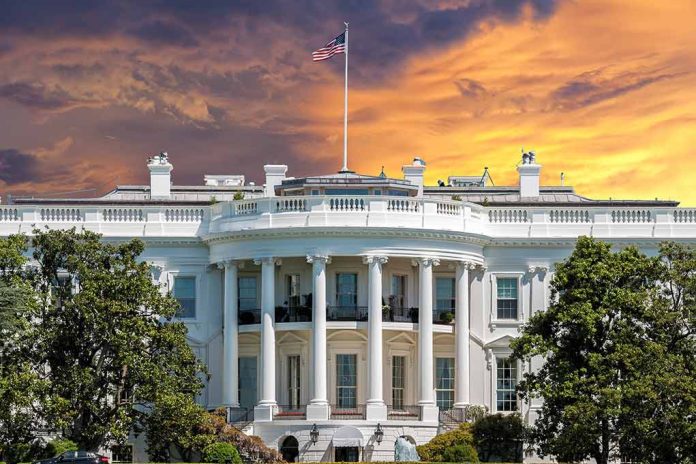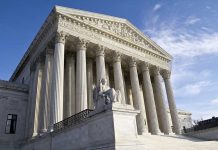
The Trump White House is restoring the significance of Easter with a series of powerful spiritual events that mark a clear return to Christian values in America’s highest office.
Key Takeaways
- President Trump’s newly created White House Faith Office has organized an “extraordinary” Holy Week celebration featuring multiple religious events.
- The celebration includes a Holy Week proclamation, a special presidential video message, a pre-Easter dinner with Christian leaders, and a White House staff Easter service.
- The Trump administration’s approach represents a deliberate shift from the previous administration, which was criticized for marking Easter Sunday as Transgender Day of Visibility last year.
- Trump has reaffirmed his commitment to defending Christianity in schools, military, workplaces, hospitals, and government.
- The White House Faith Office was established as part of Trump’s campaign promise to millions of Christians across America.
White House Faith Office Leads Return to Religious Prominence
The newly established White House Faith Office is spearheading an unprecedented celebration of Holy Week and Easter at the White House, demonstrating President Trump’s commitment to restoring Christian prominence in the executive branch. This year’s observance represents a marked departure from recent years, with multiple events planned to honor the most sacred week in the Christian calendar. The celebration is being led by the newly formed Faith Office, which was established by executive order earlier this year to empower faith-based entities and protect religious liberty across government.
“The newly created White House Faith Office is grateful to share that President Trump will honor and celebrate Holy Week and Easter with the observance it deserves,” said Jennifer Korn, who leads the White House Faith Office.
A Week of Spiritual Events and Proclamations
The Holy Week celebration began on Palm Sunday with President Trump issuing a presidential Easter proclamation focused on the crucifixion and resurrection of Jesus Christ. In his message, Trump reaffirmed his administration’s dedication to defending religious freedom and the Christian faith. Throughout the week, the White House will host several significant events, including the release of a special Holy Week video message on Monday and a pre-Easter dinner on Wednesday featuring Christian hymns, opera performances, prayers, and remarks from the president himself.
The celebration will culminate on Holy Thursday with a special staff worship service at the White House, where participants will hear from notable religious figures and enjoy worship music provided by Liberty University. These events represent a deliberate focus on the spiritual significance of Easter rather than secular or alternative celebrations that had become common under previous administrations.
Restoring America’s Christian Heritage
In his Palm Sunday message, President Trump emphasized the sacred nature of Holy Week and the central importance of Christ’s sacrifice in the Christian faith. “During this sacred week, we acknowledge that the glory of Easter Sunday cannot come without the sacrifice Jesus Christ made on the cross,” stated Trump. “On Easter morning, the stone is rolled away, the tomb is empty, and light prevails over darkness — signaling that death does not have the final word.”
The administration’s approach to Holy Week deliberately contrasts with that of the previous White House, which faced criticism last year for marking Easter Sunday as Transgender Day of Visibility. White House Press Secretary Karoline Leavitt highlighted this difference, noting, “President Trump promised millions of Christians across the country that he would create a White House Faith Office, and he delivered on that promise.”
As our nations mark 100 years of diplomatic relations, the U.S.–Poland alliance is stronger than ever before! 🇺🇸 🇵🇱 pic.twitter.com/n8YQEuOYr3
— The White House 45 Archived (@WhiteHouse45) June 12, 2019
Defending Christianity and Religious Liberty
The White House Faith Office represents a broader initiative by the Trump administration to protect religious liberty and combat what they describe as anti-Christian bias. The Office, established by executive order, works as part of the Domestic Policy Council to recommend policy changes that align with American values and coordinate with federal agencies on religious liberty training. It also promotes grant opportunities for faith-based organizations and collaborates with the Attorney General to address failures in enforcing religious liberty protections.
“We will never waver in safeguarding the right to religious liberty, upholding the dignity of life, and protecting God in our public square,” declared Trump, reinforcing his commitment to defending the Christian faith across various sectors, including schools, military workplaces, hospitals, and government.
The administration has already taken several concrete steps to fulfill these promises, including pardoning Christians and pro-life activists, reinstating service members discharged over pandemic vaccine mandates, signing executive actions to prevent federal overreach, and establishing a task force to eradicate anti-Christian bias. These actions build upon efforts from Trump’s previous term, which included stopping the Johnson Amendment, establishing the Faith and Opportunity Initiative, and providing guidance for religious expression in public schools.






















